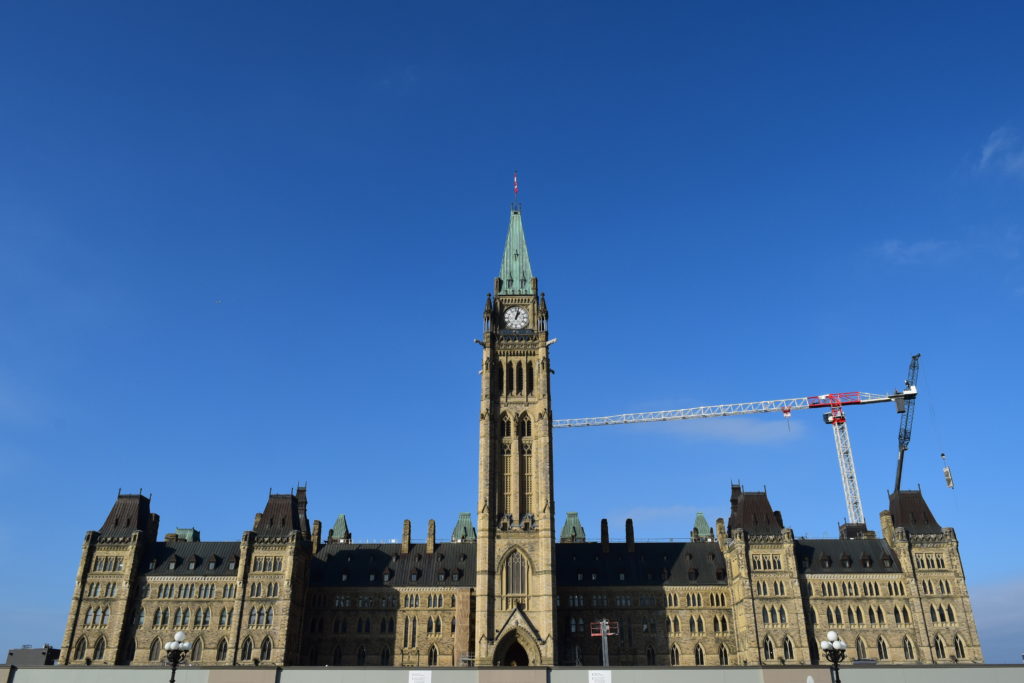Ottawa’s housing emergency is more than just a series of disturbing facts and figures — it has serious negative impacts on some of the city’s most vulnerable citizens. We reached Tessa Huron, one of these vulnerable people, in her home to discuss how the crisis has affected her. What follows is a harrowing look at the life of a low-income single parent, struggling to make ends meet.




In January of 2020, Canada’s capital city became the first in the country to declare a housing emergency. In the intervening months, not much has changed for Ottawa’s low-income and housing insecure citizens. For these people, the housing crisis is still very much in full-swing. Why? Affordable housing is still scarce and rents are still unmanageable for many. While the situation does seem bleak, anti-poverty groups like Ottawa-Gatineau Acorn have played a major role in holding decisionmakers to account. But this is not enough. Real policy reforms, like subsidies for builders looking to build affordable housing , are how we get out of this housing crisis.

What’s Wrong?
Ottawa’s waitlist for affordable housing has grown to 12,000 people, a 14.8 percent increase since 2017, according to Coun. Catherine McKenney, the city council’s housing liaison.
At the same time, it’s estimated that over 92 people have taken to sleeping outside in the city’s increasingly frigid temperatures. The primary explanation for this is that Ottawa’s emergency shelters are becoming increasingly overcrowded, with the Ottawa Mission operating at 107% capacity from May to September 2018. This is especially true of women’s shelters – with more and more survivors of domestic violence being turned away.
Rents are also increasing in Ottawa. The province authorized landlords to increase rents by a maximum of 2.2% this year, the largest increase in more than 6 years. This might not seem like much, but the consequences for those in low-income or living on fixed earnings, like retirees have been disastrous.
“A lot of seniors are on fixed incomes and really find it difficult when they have to face rent increases every year,” said Rick Baker, the president of Canadian Association of Retired Persons Ottawa.

The cumulative effect of these rent increases has been to land Ottawa the fifth spot on Canada’s most expensive rental markets in October—a dubious honour.
Furthermore, while rents and the costs of basic necessities have been increasing, the minimum wage has not kept pace with inflation. According to the Canadian Center for Policy Alternatives, a person would have to make $26/hour to afford to rent a room in a two-bedroom apartment while having enough left over to purchase basic necessities. At minimum wage, this would require 75 hours of work.

How do we Fix It?
When free markets do not produce the happiest possible result, economists say that these markets have failed. When markets fail, economists urge governments to intervene. The most common forms of intervention are taxes and subsidies. Clearly Ottawa’s rental market has failed to produce the most welfare enhancing result, so what taxes and subsidies, if any, can be used to correct it?
First, the federal government must subsidize the construction and maintenance of affordable housing in cities like Ottawa. Giving money directly to builders to cut the costs of building affordable housing will incentivize the construction of new affordable housing units. This will allow more low-income and housing insecure people to access affordable housing.
Additionally, subsidizing rent on these new units by giving landlords the difference between an affordable rent and what the market says these units should be rented out for, would enable low-income people to afford rent in these newly build units.

Furthermore, Ottawa city council must direct more of its budget to shelters, particularly women’s shelters to allow them to adjust their capacity to meet current needs. This would ensure that shelters do not exceed their capacities and that people in vulnerable situations are not turned away when they need shelter the most.
This investment should be affordable because if the federal government invests in low-income housing, fewer people will need to access shelters.
So, the problem is daunting, chronic, and the cause of much pain, but there are clear and reasonable policy solutions. So how do we bridge the gap between good ideas and concrete policy actions? The answer lies in our power as citizens, in our power to shape government policy and demand better from our leaders. We must all band together and tell governments at all levels that we are no longer willing to tolerate the suffering of the most vulnerable, that we are willing to pay for the necessary investments to protect them, and most importantly that we demand action now.

This is site is meant to provide a running start for building your assignments in WordPress. If this is your first time using WordPress take a look at the How-To Guide to get started.
Once you feel comfortable, you can customize this site in many ways: adding images, changing themes, settings, etc…
All the additional example posts on this site can be deleted or changed to a draft (not visible on the main page) once you get rolling with your assignments.
Site Privacy Settings
You can adjust your WordPress site privacy options from your Dashboard under Settings>Reading in the Site Visibility section. If you would like your site to be private we suggest using the following two options:
- Discourage search engines from indexing this site
- Visible only to registered users of this network
Note: The settings above still allow anyone with your site address and an opened.ca account to access your website, but it’s necessary for your Open Learning Faculty Member to access your assignments.
